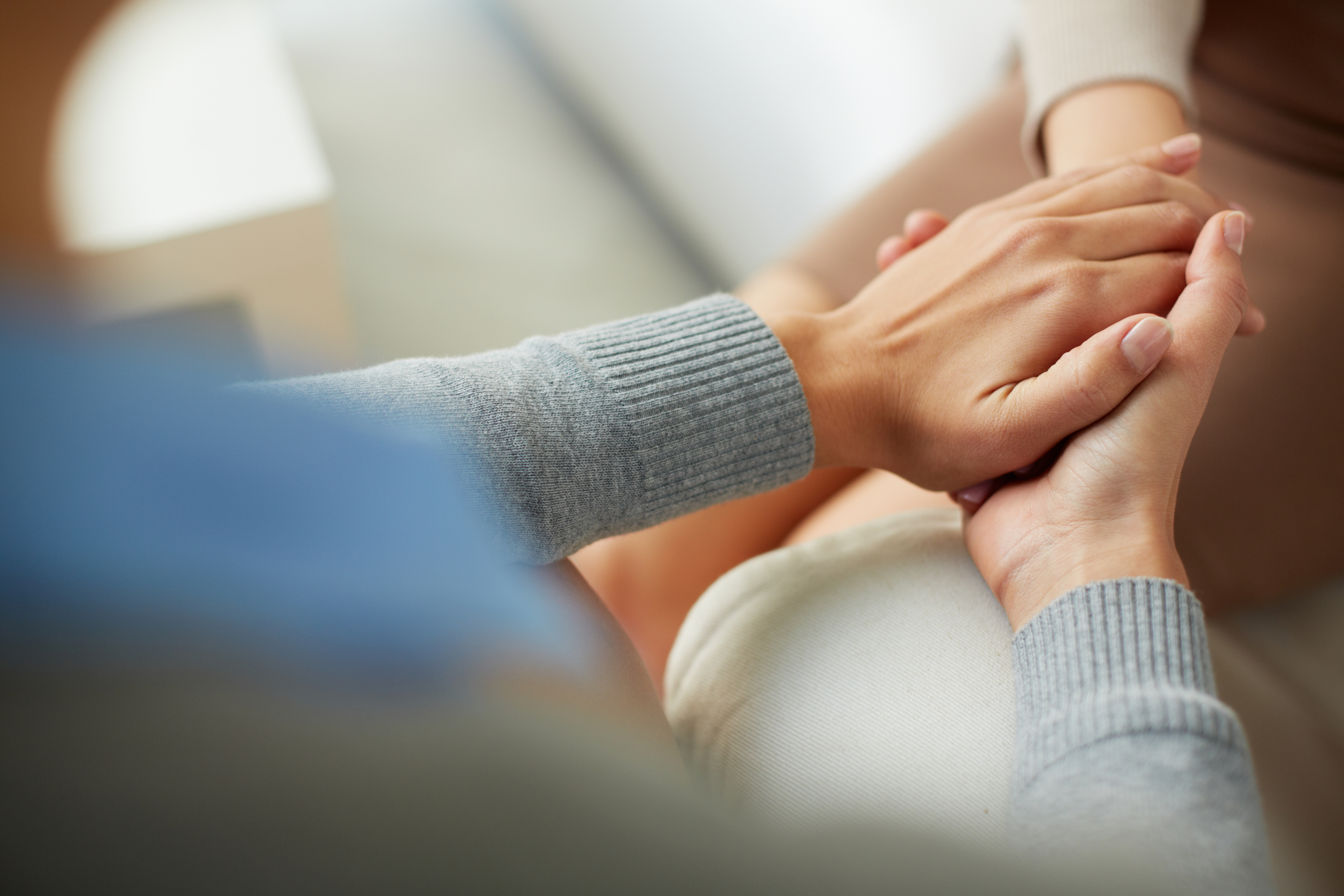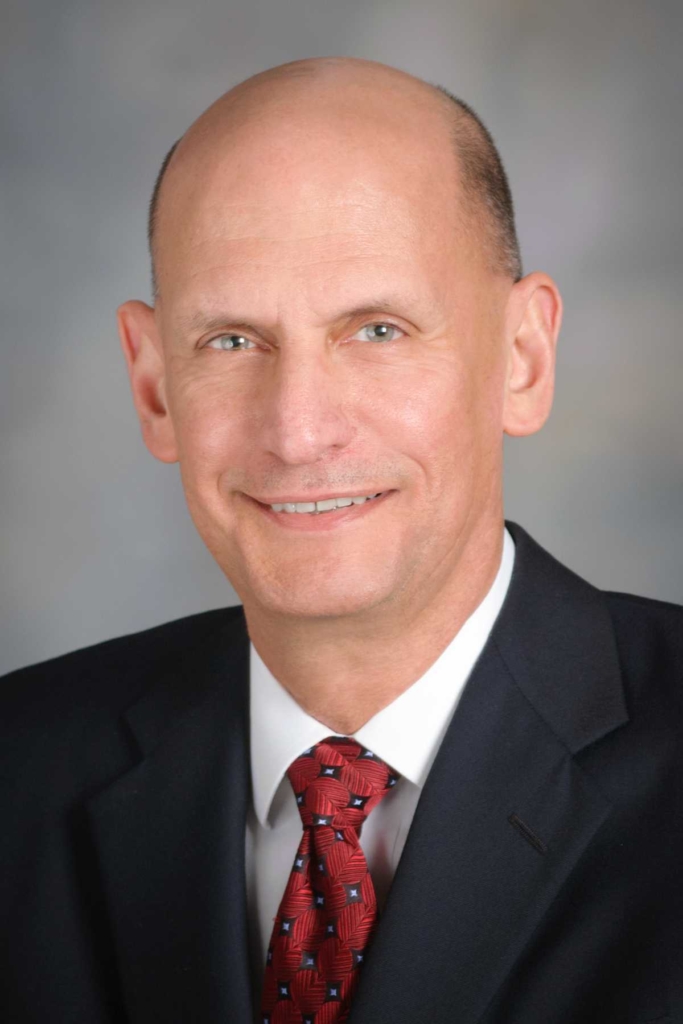Interview with an Expert: Understanding Depression and Anxiety
Topic: Real Talk: Survivor, Patient & Family Stories

Following a diagnosis of pancreatic cancer, many patients experience some level of depression and anxiety. You’re not alone! We interviewed several experts to help you recognize the signs of depression and anxiety in yourself or a loved one, as well as offering some simple steps to help combat the disorders.
Q: What are depression and anxiety?
ALAN D. VALENTINE (ADV): Depression—a persistent feeling of sadness and loss of interest—is a mood disorder that runs along a wide spectrum, ranging anywhere from a mild adjustment disorder to major depressive disorder. An adjustment disorder with depressed mood, sometimes referred to as reactive depression, is usually a short-term condition brought on by stress and the inability to cope with certain situations. Major depressive disorder is a condition that tends to develop relatively slowly and can be very serious if it is not addressed. Anxiety is intense, excessive worry and fear about everyday situations.
Anxiety can also present as an adjustment disorder. Depression and anxiety are considered different conditions, but they are often related to one another.
Q: How common are depression and anxiety in patients with pancreatic cancer?
ADV: It is very common to find patients with pancreatic cancer who experience symptoms of both depression and anxiety. Depression is more common among cancer patients than in the general population, but not everyone who has cancer becomes depressed. Because the word “depression” is a loose term and is inclusive of different diagnoses, researchers use various methods to evaluate the condition. Therefore, the prevalence of depression among pancreatic cancer patients varies throughout different studies but is thought to range from around 33%–71%.
Q: Is pancreatic cancer specifically associated with depression and/or anxiety?
ADV: Though somewhat controversial, pancreatic cancer has been linked with depression for many decades. It is thought that there are biological factors— hormones or neurochemicals, or an immunological response that produces inflammatory cytokines (a group of small proteins secreted by cell groups and involved in cell-to-cell communication)—associated with pancreatic cancer and other malignancies, and the first symptom it causes is an emotional change or even depressive syndrome. The first signs of disease that many patients with pancreatic cancer experience are changes in weight, feeling tired, or yellowing of the skin (jaundice), but they can sometimes experience emotional changes as well which may be due to elevated levels of proinflammatory cytokines.
Q: Why is it important to report symptoms of depression/anxiety to your doctor?
ADV: It is important for patients or caregivers to report symptoms to their oncologist or primary care provider because other medical considerations need to be evaluated. Some symptoms of depression or anxiety, such as insomnia, fatigue, and loss of appetite, are also side effects of chemotherapy, or a function of the disease process, which is why diagnosing depression— especially in cancer patients—can sometimes be difficult. For example, someone could be very anxious with his heart pounding at 140 beats per minute, not because he has an anxiety disorder but because he is anemic and therefore needs a different type of treatment. Additionally, the physical symptoms of pancreatic cancer that can cause depression, such as pain, loss of appetite, and weight loss, can also contribute to a person’s anxiety.
Q: What symptoms of depression/anxiety may be noticeable to others?
CINDY L. CARMACK (CLC): Patients with depression often lose interest in things that used to make them happy. You might find that someone with depression is not doing much with his or her day and not engaging in activities that used to be important. Although patients with cancer may be physically limited in their activities, someone struggling with depression may not be doing much of anything. When we assess patients, we ask, “Are there activities you are physically able to do that you’re not doing because you don’t have the motivation or desire to do them?”
Social isolation and irritability are also signs to look for in a patient who is depressed and should be mentioned to the patient’s healthcare team. Additionally, the patient may sleep a lot more than usual because of insomnia at night or hypersomnia, which are both symptoms of depression. Fatigue, difficulty concentrating, and feelings of hopelessness are other symptoms of major depressive disorder, which may develop slowly. At the same time, patients with pancreatic cancer going through treatment may experience fatigue and changes in sleep patterns as well. Patients should speak with their doctor to determine if symptoms are related to depression or to treatment. Patients with major depressive disorder may also have suicidal thoughts, and they may or may not express this to their loved ones. An evaluation of any patient’s mental health functioning should always include a suicide assessment.
Signs and Symptoms of Anxiety/Depression:
- Loss of interest in activities that were previously enjoyable
- Lack of motivation
- Feelings of worry, fear, or hopelessness
- Difficulty concentrating
- Social isolation
- Fatigue
- Hypersomnia or insomnia (sleeping more or less often than usual)
- Eating more or less than usual
- Thoughts of suicide
Anxiety, on the other hand, tends to be more sudden and severe, so this may be noticed by others a little sooner. Patients with anxiety may also experience worry. It is common for someone to feel worried when he or she is diagnosed with cancer. However, if it reaches a point where the patient is feeling restless and constantly worrying, and it is interfering with his or her ability to concentrate or sleep, this should be discussed with a doctor. Fear is also a symptom of anxiety, although patients might not know what they are afraid of. If anxiety becomes severe, it can progress to full-blown panic.
Since depressive disorders tend to develop slowly, the patient may not even realize that he or she is depressed. Caregivers or someone close to the patient are often in the best position to notice a change in their loved one’s mood or behavior.
Q: How can caregivers help their loved one with pancreatic cancer get help for depression and anxiety?
ADV: If caregivers think their loved one is suffering from depression and/or anxiety, they should raise these topics by asking questions such as, “How are you doing emotionally?” or “You’re not yourself, and it’s not just that you have pancreatic cancer; this is extending to other things. How do you feel about this? Would you be willing to talk about it?”
It is understandable for patients with pancreatic cancer to feel sad and anxious sometimes, but if they are not adapting and their mood is interfering with their quality of life or causing other problems, then it is something that should be addressed. Being supportive is a really tough job, but honest, nonjudgmental, caring observation and comments are how I would suggest it be approached. Family and caregivers should not be scared of how their loved ones will react to them discussing their concerns. Depression and anxiety are conditions that need to be recognized and are not something to be afraid of.
Q: What challenges do caregivers face, and how do they get the support they need to help themselves and their loved ones cope with pancreatic cancer?
ADV: Emotional distress is more common among cancer caregivers than in the general population. Research shows that caregivers can be just as distressed as patients going through cancer. Caregivers are in a difficult position because they are also dealing with their own fears and emotions about what is happening to their loved ones. Being a caregiver is a difficult and honorable job, but caregivers cannot take care of their loved ones if they do not take care of themselves. It is important that caregivers know there is support available for them, including support groups both online and in person. Caregivers are encouraged to talk to their loved one’s doctor for more information about these useful resources.
Q: When should the doctor be informed of the patient’s depression and/or anxiety?
CLC: There should be some discussion between the patient and the doctor from the onset of symptoms. It is important to take care of the patient’s cancer, but it is equally important to take care of the patient’s emotional state. If a patient with pancreatic cancer is feeling ill or experiencing fatigue, pain, trouble concentrating, loss of appetite, and weight loss, it should raise concern about not only the pancreatic cancer but also concern that the patient may be experiencing depression or anxiety.
The use of some kind of standardized distress screening tool may prove useful. If depression and/or anxiety are consistently interfering with a patient’s ability to function or participate in his or her own treatment, it should be brought to the doctor’s attention. Patients with pancreatic cancer may have one or two bad days with pain where they seem really depressed and are not interested in doing anything, but it is a red flag if they continue to feel down once the pain is addressed and managed. It is important for patients and their loved ones to learn how cancer can affect them emotionally, so they can be aware and catch the problem before it becomes severe.
Patients and their families should be assured that it is okay to discuss these issues and describe what they are experiencing. For example, patients may express sentiments such as, “I am really feeling down,” “I don’t feel like I normally do; I feel different,” “I’m so nervous that I cannot sleep at night,” “I can’t concentrate on my work,” or “When I’m supposed to be looking after my kids, I’m not paying attention to them.” Importantly, the healthcare team should be informed of any patient’s expressed desire for self-harm.
Q: Why should patients seek treatment for depression and anxiety?
ADV: It is important for patients and caregivers to understand that depression and anxiety are treatable disorders, and they do not have to live with these conditions. We do not want anyone to be in emotional pain any more than we would want them to be in physical pain. Patients should know there are treatment options available for their emotional symptoms.
There is an automatic assumption that patients with cancer will get depressed and that nothing needs to be done about it. There is also a stigma associated with mental health disorders in general, so patients and families may be ashamed to bring up the subject. Between the stigma and this idea that it is normal to feel depressed or anxious, patients (and sometimes doctors) may decide not to take action. However, a lot of pain can be avoided if patients and their families inform the doctor of any signs of depression or anxiety.
Patients and their families should know these feelings are common and are nothing to be ashamed of. Left untreated, depression and anxiety can interfere with the patient’s ability to cope and adhere to treatment. Some studies even suggest an adverse effect on survival. Patients should seek treatment when symptoms interfere with their ability to cope or problem solve, or when it becomes difficult to handle everyday tasks, which could be educational or work-related, or when it becomes a challenge participating in their own care as cancer patients. Treatment should be started any time a patient is suffering.
Q: What kinds of treatments are used to treat depression and anxiety?
ADV: Commonly used therapies are psychotherapy and medications. Psychotherapy can be done in a group setting or one-on-one between an individual and a mental health professional. Sometimes a few brief therapy sessions can be effective in preventing mild anxiety or depression from progressing to full-blown major depression.
Antidepressants are also commonly used for depression and sometimes for maintenance therapy of anxiety disorders. Medications may not be adequate by themselves. At least for major depression, a combination of psychotherapy and medication typically works better than either one alone, even though psychotherapy or medication alone can be effective.
Q: Are there any concerns about overmedicating patients?
ADV: Yes, always, in any setting. Otherwise the risks are mostly related to drug–drug interactions. I encourage patients and/or family members to ask, “Is this antidepressant going to interfere with any other drugs? What are the side effects?” Our goal is to educate our patients and their caregivers so they are knowledgeable about all prescribed medications.
Q: How can a pancreatic cancer patient or caregiver find a good mental health provider?
CLC: A good start would be to ask the oncologist and begin with an in-house mental health provider located where the patient is receiving cancer care. If counselors are unavailable at the patient’s treatment center, it is also okay to find a provider in the community. While it is convenient for patients to coordinate a psychiatry visit when they meet with their oncologist, they might also need to see a psychologist or counselor more frequently, so finding a provider closer to home might be helpful if they are not available at their treating oncology center. Cancer centers that are associated with medical schools often have very good oncology and psychiatry/ behavioral health departments.
Q: What are some techniques for managing depression and anxiety?
ADV: I am a big fan of distraction. I suggest that patients try to focus on something that takes their mind off of their depression or anxiety, preferably activities that the patient previously enjoyed doing, although that is sometimes easier said than done.
I also suggest exercise for all my depressed patients, as exercise is an activity that patients can do to contribute to their own physical and emotional health and a way for them to take part in their own care and recovery. In fact, studies indicate it is the best treatment for cancer-related fatigue. For patients who are physically able, exercise also helps relieve depression and anxiety, serving as a distraction technique, as well as providing a sense of personal accomplishment. Also, being physically stronger can help patients withstand the side effects of treatment.
If patients are uncomfortable about exercise, especially if they are out of shape, occupational therapists, physical therapists, and rehabilitation medical doctors can be helpful. It is more important for exercise to be regular than to be intense. If my patients are physically able, I suggest walking as a form of exercise, especially because it can be done at the patient’s own pace and family members or friends can also participate. Water aerobics are also helpful for some patients. For other patients, Tai Chi, self-hypnosis, or relaxation training works well.
Ways to cope with anxiety/depression:
- See a doctor if symptoms are interfering with your life
- Find a therapist you trust and with whom you are comfortable speaking
- Take the medications the doctor prescribes
- Get plenty of sleep and adequate exercise
- Eat a well-balanced diet
- Meditate and do relaxation exercises (deep breathing, yoga, Tai Chi, etc.)
Meet Our Experts:

Alan D. Valentine, M.D., is a Professor and Chair of the Department of Psychiatry at The University of Texas MD Anderson Cancer Center

Alan DCindy L. Carmack, Ph.D., is a licensed clinical psychologist and Associate Professor in the Department of Palliative Care, Rehabilitation and Integrative Medicine at The University of Texas MD Anderson Cancer Center.
Strengthening Resolve Through Support Groups

Meet Our Expert: Randy Hight, LCSW, OCW-C, is the Director of the Nancy Marx Cancer Wellness Center (NMCWC) at the Sid Jacobson Jewish Community Center in Roslyn, NY. At NMCWC, she collaborates with doctors, social workers, nurses and local hospitals to provide programs that help improve the emotional and physical health of participants.
One of the most overlooked areas of a pancreatic cancer diagnosis is the isolation that patients feel, which can lead to depression. Patients often spend the majority of their time going to doctor appointments, having and recovering from surgery, and/or undergoing chemotherapy treatment; they have so much emotional distress that they distance themselves from their loved ones, activities, hobbies, and work they enjoy. One of the best steps patients can take is to reach out to others by attending cancer support groups where they share their feelings without fear of being judged, among a group of people who can uniquely empathize with their experiences. Patients socialize, offer comfort and encouragement, and discuss new treatments, research and clinical trials, and strategies to manage cancer pain and deal with side effects including hair loss and neuropathy.
Most importantly, groups help to universalize what people are going through so that they can draw strength from others who have a similar experience. Survivors often attend and serve as role models, recommending that patients infiltrate back into life, despite a devastating cancer diagnosis, and that every day, they set small goals for themselves, even if it’s simply getting dressed and getting the mail.
Patients can find support groups at their hospitals, or by contacting CancerCare® if they need phone conversations and online groups because they’re not well enough to travel. Cancer Hope Network also connects patients with another person who has gone through a similar cancer experience to serve as a support system. It is crucial that social workers and other therapists let their patients know if they feel patients need additional treatment to complement talk therapy, such as medication.
Attending a support group can help patients stay present, appreciate life’s gifts, and help them find hope while living with a diagnosis of pancreatic cancer. That’s why every step towards reconnecting with the outside world and with other people in a group setting matters. At any given moment, there is the potential for a new treatment around the corner, and that possibility should bring hope and comfort to patients.
Make a difference in patients’ lives by donating to the Lustgarten Foundation today and supporting pancreatic cancer research. We couldn’t accomplish all that we do without you.

